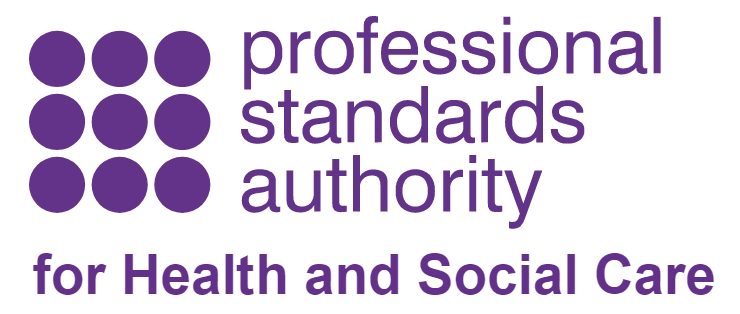About this course
LJMU's Counselling and Psychotherapy Practice MA develops practitioner researchers and offers the equivalent components of a PgDip in Counselling and Psychotherapy and Independent Research Dissertation.
PLEASE NOTE: The deadline for this course is 7 February 2025.
- Qualify as a Counselling and Psychotherapy Practitioner on this flexible Masters programme with a two-year clinical Diploma-level component
- Enjoy a contemporary curriculum delivered by a research centre of excellence
- Study a core model of person-centred and experiential practice, integrating other specific approaches
- Carry out novel research in your chosen field
- Benefit from excellent educational and professional training facilities, exceptionally supportive staff and a thriving student community
Counselling and Psychotherapy students come from a wide range of backgrounds in the voluntary, statutory, and commercial sectors. This creates a rich learning environment, enhancing the experience for everyone.
Our programme locates counselling and psychotherapy in its social, political, ecological, and economic context. It explores counselling through an intersectional lens and advocates anti-oppressive practice.
Integral to the course are considerations of power and prejudice, including those pertaining to class, disability, ethnicity, gender, and sexuality.
The programme is a professional training in Person-Centred Experiential Therapy. This includes Pre-Therapy, Focus Orientated Therapy, and Emotion Focused Therapy. Students will be supported to meet the required competencies to offer online and phone counselling to clients. Students will be given an overview of other therapeutic models that are not practiced on the course. This may include Cognitive Behavioural Therapy (CBT), Brief Solution Focused Therapy (BSFT), Eye Movement Desensitisation and Reprocessing (EMDR), Existential Therapy, and Psychodynamic Therapy.
The programme is delivered by practicing therapists and supervisors who are registered with Counselling and Psychotherapy professional bodies such as British Association for Counselling and Psychotherapy (BACP) and National Counselling Society (NCS). You will learn to work with issues such as loss, bereavement, anxiety, trauma, stress, mental health issues, depression, suicidal ideation, and sexual abuse.
Course modules
Discover the building blocks of your programme
Further guidance on modules
Modules are designated core or optional in accordance with professional body requirements, as applicable, and LJMU’s Academic Framework Regulations. Whilst you are required to study core modules, optional modules provide you with an element of choice. Their availability may vary and will be subject to meeting minimum student numbers.
Where changes to modules are necessary these will be communicated as appropriate.
Core modules
Professional accreditation
The MA Counselling and Psychotherapy MA at LJMU is a dynamic and forward-thinking course that is independent of any specific professional counselling body, but which prepares you for student membership, professional registration and accreditation with several counselling and psychotherapy organisations on the Professional Standards Authority (PSA) register.
During the course, you are expected to enrol as a student member of a PSA-approved counselling membership body of your choice. You can learn more about PSA-approved registers on its website.

Your Learning Experience
An insight into teaching on your course
Study hours
The first two years of the programme are dedicated to equipping you with the knowledge and skills to qualify as a competent, ethically minded, reflective person-centred-experiential counselling and psychotherapy practitioner.
Years 1 and 2 involve attending timetabled lectures one day per week. In addition to the timetabled teaching, there is the equivalent of one day a week of independent study.
Year 1 modules:
- Person-Centred-Experiential Counselling Theory
- Person-Centred-Experiential Counselling Skills
- Ethical Practice in Counselling and Psychotherapy
- Personal Development
You must pass all Year 1 modules to progress to Year 2.
Year 2 modules:
- Counselling Theory
- Counselling Competency - Developing Expertise
- Ethical Practitioner Research in Counselling and Psychotherapy
- Personal Development
In addition to the timetabled teaching and independent study, the Counselling Competency module has a practice element. Students are required to complete 100 supervised client hours at an LJMU approved practice placement. Students typically dedicate one day a week to their placement work.
Students must plan for the additional cost of fortnightly counselling supervision required when working with clients as specified by counselling and psychotherapy professional bodies.
Please note, successful completion of 7031COCPSY Ethical Practitioner Research is required before students can submit their research dissertation.
Year 3
Students will study independently to complete ethical, reliable, and valid practitioner research. There are four days of timetabled sessions, scheduled for mid-September. The lectures introduce students to this phase of the course and include research ethics and methodology.
Teaching methods
You will be taught via a series of lectures, seminars, films, discussion sessions, experiential learning and e-learning activities. Lecturers will offer valuable insights into the latest theories and practice techniques and ample one-to-one sessions will ensure the development of key communication skills.
Applied learning
There is a strong focus on practice placements in year two. These may involve voluntary counselling agencies; counselling services in colleges, hospitals or workplaces or those attached to a GP surgery.
How learning is monitored on your programme
To cater for the wide-ranging content of our courses and the varied learning preferences of our students, we offer a range of assessment methods on each programme.
The counselling and psychotherapy lecturers are all practicing therapists, who offer valuable insights into the latest theory and practice.
Each module in the first two years is assessed through coursework, using a variety of assessment methods including:
- essays
- case studies
- recording of skills work
- written critiques of skills work
- reflective work
- presentations
- verbal feedback
Relational skills are the cornerstone of counselling and psychotherapy. You are part of a community of learners and, as such, are encouraged to learn with and from each other. Peer assessment is a key feature of the course.
The final MA year involves four days of study followed by a research project to produce a dissertation, supported by tutorials and other forums.
Where you will study
Situated in the City Campus, the School of Nursing and Allied Health works with a wide range of health and social care organisations to design, deliver and evaluate a dynamic suite of postgraduate programmes. In addition to specialist facilities, you will find high quality meeting and seminar rooms and lecture theatres, the Avril Robarts Library, plus a large cafe, IT facilities and social spaces.
Career paths
Further your career prospects
LJMU has an excellent employability record with 96% (HESA 2018) of our postgraduates in work or further study six months after graduation. Our applied learning techniques and strong industry connections ensure our students are fully prepared for the workplace on graduation and understand how to apply their knowledge in a real world context.
The course creates very employable graduates with many going on to work in the NHS, private and voluntary sectors. As a graduate you may move to higher management levels or developmental initiatives within your existing role, demonstrating an increased level of autonomy and responsibility.
Psychotherapists and counsellors are much sought after in various areas of business and many course graduates will go on to work as qualified Psychotherapists, Practitioner Researchers, IAPT Wellbeing Practitioners, Support Workers and Mental Health Workers.
Tuition fees and funding
- Part-time per credit:
- £60
Fees
The fees quoted above cover registration, tuition, supervision, assessment and examinations as well as library membership and student IT support with access to printed, multimedia and digital resources including programme-appropriate software and on campus wifi.
Financial Support
There are many ways to fund postgraduate study for home and international students. From loans to International Scholarships and subject-specific funding, you’ll find all of the information you need on our specialist postgraduate funding pages. The University offers a range of financial support for students. You'll find all the information you need on our specialist financial support pages including details of the Student Support Fund and other activities to support with the cost of living.
Additional Costs
In addition to fees, students should also keep in mind the cost of:
- Accommodation
- Travel costs and field trips unless paid for by LJMU
- Stationery, IT equipment, professional body membership and graduation gown hire
Additional Course Related Costs
Personal Therapy
A minimum of 12 sessions of personal therapy over the first two years of the programme, with at least six sessions taking place in Year 1 (approximately 30 to 60 per session).
Counselling Supervision
It is a course requirement that Year 2 students, who are on placement working with up to four clients a week, have fortnightly clinical supervision of at least 60 minutes. Students working with five or six clients per week are required to attend 90 minutes of supervision fortnightly. Supervision costs can vary significantly. Some placements fund (or part fund) counselling supervision for trainees. However, a 60-minute supervision session typically costs 30 - 50.
Professional Body Membership
During the course, you are expected to enrol as a student member of a PSA-approved counselling membership body of your choice (please see Professional Accreditation section above). The cost of student membership is not included within the course fees.
Entry requirements
You will need:
Qualification requirements
How to apply
Securing your place at LJMU
To apply for this programme, you are required to complete an LJMU online application form. You will need to provide details of previous qualifications and a personal statement outlining why you wish to study this programme.
Please note: the application deadline for this degree is Friday 7 February 2025.
Your university life
From accommodation and academic support to clubs and societies. Find out what LJMU has to offer.
Related Links
Talk to our students
Connect with a current LJMU student for advice and guidance on university life, courses and more.
See what our students are saying
At LJMU we want you to know you’re making the right choice by studying with us. You can see what our students are saying about their experience with us through their reviews on the following websites:
Related Links
News and views
Browse through the latest news and stories from the university
The University reserves the right to withdraw or make alterations to a course and facilities if necessary; this may be because such changes are deemed to be beneficial to students, are minor in nature and unlikely to impact negatively upon students or become necessary due to circumstances beyond the control of the University. Where this does happen, the University operates a policy of consultation, advice and support to all enrolled students affected by the proposed change to their course or module.
























